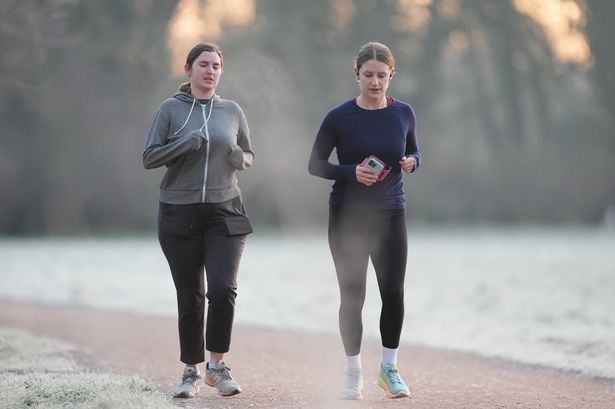Health
Short Exercise Breaks Boost Health, Study Reveals Key Benefits

A new study published in the British Journal of Sports Medicine reveals that short bursts of exercise, referred to as “exercise snacks,” can significantly enhance health and fitness. Researchers suggest that these brief activities, lasting only a few minutes, can improve respiratory fitness and may be particularly beneficial for those who struggle with time constraints or motivation.
The findings indicate that engaging in as little as 10 to 59 minutes of physical activity per week is linked to an 18% reduction in the risk of premature death from any cause. Currently, many adults do not meet the recommended exercise guidelines, which advise 150 to 300 minutes of moderate activity, or 75 to 150 minutes of vigorous activity weekly.
Benefits of Short Bursts of Activity
Researchers from the University of Oviedo in Spain and the Danish Centre for Motivation and Behaviour Science conducted a comprehensive assessment, reviewing 11 randomized controlled trials involving 414 inactive participants, of whom 69% were women. The study specifically defined exercise snacks as structured bouts of physical activity lasting less than five minutes, performed at least twice daily for a minimum of three days each week.
Pooling the results of these trials, the researchers observed a significant improvement in cardiorespiratory fitness among adults who participated in exercise snacks. Although these short bouts did not show changes in body composition, blood pressure, or cholesterol levels, they were still regarded as beneficial. The researchers noted that individuals are more likely to sustain short bursts of activity compared to longer workout sessions, which often lead to dropout.
The team emphasized the mental health advantages of meeting even half of the recommended weekly physical activity volume. Achieving 150 to 300 minutes of moderate or 75 to 150 minutes of vigorous intensity activity correlates with an 18% lower risk of depression. They stated, “These findings highlight the potential of low volume, accessible physical activity strategies to produce significant health benefits, particularly among physically inactive adults.”
Integrating Exercise into Daily Life
The researchers stressed that the efficient nature of exercise snacks may appeal to individuals who consider themselves too busy to engage in traditional workouts. “Exercise snacks may enhance adherence to regular physical activity by providing short, flexible exercise bouts that are easier to integrate into daily routines,” they explained.
Examples of moderate activities include brisk walking at speeds of 4 mph or faster, heavy cleaning tasks such as washing windows, cycling at 10 mph to 12 mph, or playing badminton. Vigorous activities encompass hiking, jogging at speeds of 6 mph or faster, shoveling, fast cycling, basketball, or tennis.
The research underscores a growing body of evidence advocating for the incorporation of short, structured physical activities into daily life, particularly for those who find it challenging to commit to longer exercise sessions. By making physical activity more accessible, experts hope to encourage a healthier population equipped to tackle the challenges of modern lifestyles.
-

 Technology4 months ago
Technology4 months agoDiscover the Top 10 Calorie Counting Apps of 2025
-

 Health2 months ago
Health2 months agoBella Hadid Shares Health Update After Treatment for Lyme Disease
-

 Health3 months ago
Health3 months agoErin Bates Shares Recovery Update Following Sepsis Complications
-

 Technology3 weeks ago
Technology3 weeks agoDiscover 2025’s Top GPUs for Exceptional 4K Gaming Performance
-

 Technology4 months ago
Technology4 months agoDiscover How to Reverse Image Search Using ChatGPT Effortlessly
-

 Technology2 months ago
Technology2 months agoElectric Moto Influencer Surronster Arrested in Tijuana
-

 Technology4 months ago
Technology4 months agoMeta Initiates $60B AI Data Center Expansion, Starting in Ohio
-

 Technology4 months ago
Technology4 months agoRecovering a Suspended TikTok Account: A Step-by-Step Guide
-

 Health4 months ago
Health4 months agoTested: Rab Firewall Mountain Jacket Survives Harsh Conditions
-

 Lifestyle4 months ago
Lifestyle4 months agoBelton Family Reunites After Daughter Survives Hill Country Floods
-

 Technology3 months ago
Technology3 months agoUncovering the Top Five Most Challenging Motorcycles to Ride
-

 Technology4 weeks ago
Technology4 weeks agoDiscover the Best Wireless Earbuds for Every Lifestyle





















